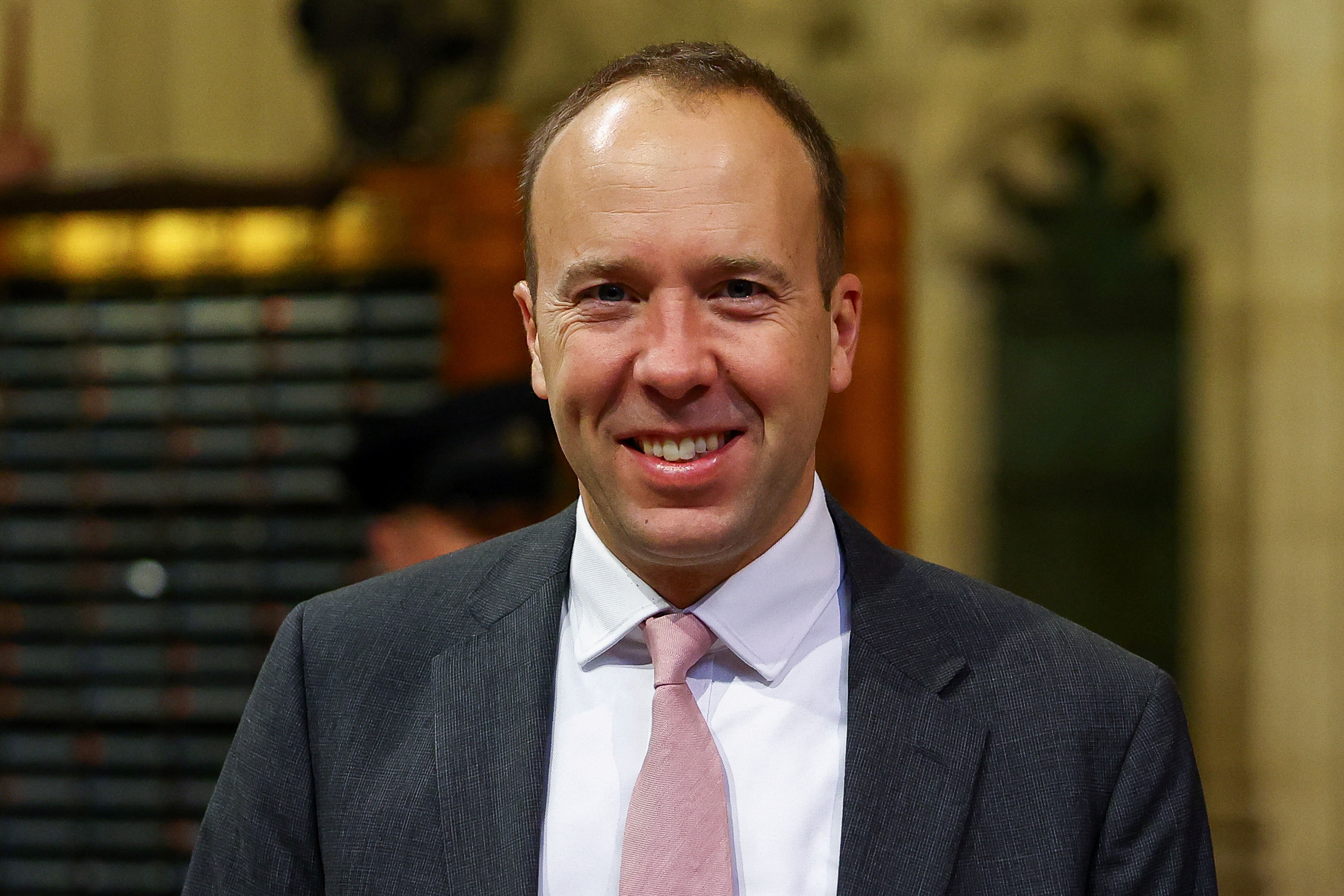Inequalities in special needs diagnoses is a ‘silent scandal’, Matt Hancock says
The Independent MP argued there is ‘an unjust allocation of diagnosis’ within the special educational needs and disabilities system.

Inequalities in accessing a special needs diagnosis is a “silent scandal” which needs to be dealt with, former health secretary Matt Hancock has said.
The Independent MP argued there is “an unjust allocation of diagnosis within the system”, with children from affluent families being better off than those who cannot afford to pay for a diagnosis.
Mr Hancock said he had set up a charity – Accessible Learning Foundation – which aims to improve early identification of neurodivergent children.
During a debate on special educational needs and/or disabilities (SEND) provision and funding, Mr Hancock said: “Here there is a bigger social injustice and it needs to be named and then it needs to be dealt with, and that is that there is a silent scandal of access to diagnosis.
“Now I come at this from the point of view of dyslexia. I am dyslexic and it is the area I am most expert in.”
He added: “The truth is that in the most affluent decile there are parents who can pay the £600 for diagnosis outside of the state system and there are more parents who are articulate and able to fight, go to their MP, go to the council and make the case.”
Mr Hancock told MPs that according to a London School of Economics report published in November last year, 15% of children with specific learning difficulties are in the most affluent decile and 6% are in the most deprived, adding: “This cannot reflect reality, it is simply not true.”
He said: “There is an unjust allocation of diagnosis within the system, there is relatively too much diagnosis amongst those in the upper echelons of the demographic scale, and there is relatively too little for those who are less well off and this is unfair.”
The MP for West Suffolk told the Commons: “There aren’t enough diagnoses, there isn’t enough early identification, there isn’t enough funding, but crucially there is also an inequality in the diagnosis that leads to the EHCPs (education health and care plans).
“I have founded a charity, the Accessible Learning Foundation, to try to champion this need for early identification and support – that is how much I care about it.”
There is a bigger social injustice and it needs to be named and then it needs to be dealt with, and that is that there is a silent scandal of access to diagnosis
Earlier in the debate, Conservative former minister Sir David Davis said national pressures are why campaigners are calling for an extra £4.6 billion from central government for special educational needs and disability budgets.
Sir David, who represents Haltemprice and Howden, said ECHPs were a “well-intentioned” reform that sought to provide support for young people in need, adding: “But what the reforms failed to do was provide resilience in the system to deal with future changes to demand for services.
“In recent years there’s been a huge increase in that demand – population growth, better detection of conditions like autism, longer life expectancy because of medical progress. All put pressures on the system.
“As a result the total number of EHCPs and statements of special need have more than doubled since 2015, a rise of more than 250,000 cases, with large increases in every age group. But the funding from central Government has simply not kept pace.
“Part of the answer here is updating the funding formula, the existing allocation of funds is based on an out-of-date assessment of each area’s special educational needs.”
Meanwhile, Conservative MP and chairman of the Education Select Committee Robin Walker said the Government increased funding for high needs education “very substantially” over recent years, “more than doubling since 2015 and increasing 60% since the start of this Parliament”.
But he added: “Whilst it is undoubtedly true that this Government has prioritised the needs of SEND children in spending reviews, it’s also true that the real and substantial increases haven’t been enough to meet demand.”
He said the “vast majority” of local authorities are “facing high needs deficits”.
Labour’s Rachael Maskell said one of her York Central constituents had to be placed in residential care “halfway across the country” because of a lack of SEND funding available for an accessible shower while Conservative MP Selaine Saxby (North Devon) said Devon is “in the middle of a special educational needs pandemic”.
Education minister David Johnston said: “We know the system is not delivering consistent support and outcomes and that there are significant financial pressures on it despite considerable Government investment.”
Mr Johnston added: “The Government has considerably increased the higher needs budget. In 2024/25 it will be £10.5 billion, which is 60% higher than the figure it was in 2019/20.”
He went on: “The system needs reform and that’s why we published our SEND and (alternative provision) improvement plan last year, with the aim of getting children and young people the right support in the right place at the right time.”
Bookmark popover
Removed from bookmarks